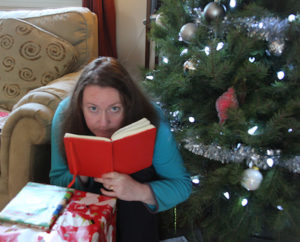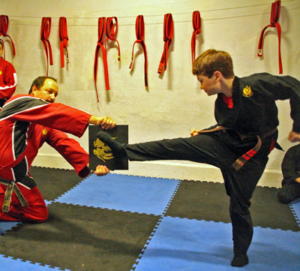
Do you ever struggle with motivation? Lord knows, I do. [1. Let’s face facts: I’m the kind of person who needed to launch an annual month-long, world-wide challenge to get me back to writing short stories!]
It’s October. The mornings are dark. The novelty of the kids being back at school has turned into the grind of early breakfasts and fights over homework. I’m having trouble writing new words, or sticking to a healthy eating plan. Frankly, even the breakfast dishes are looking like a bit like Mount Everest right now…and I feel just as likely to conquer either.
(OK, this is the strangest opening I’ve ever written to a pep talk. Let’s hope things pick up from here, eh?)
How To Move Forward?
So: bad week.
But this morning I got an email that changed my perspective.
A few years ago, a friend sent me a $25 gift certificate for Kiva.org. (Bear with me.)
If you don’t know: Kiva is a micro-lending program that works with people all over the world, to help fund their businesses and entrepreneurial ideas. You choose and person and project and contribute towards their goal. They pay you back gradually.
This morning I got an email about my two most recent loans. Chin, in Cambodia, is a 61 year old mother of five. She’s using her loan to build a latrine for her family because her house has none [2. If that’s not enough to make me stop and count my blessings, I really AM a lost cause!]. Her first repayment came in this morning.
Do you see what I got?
$1.04
All she paid to me was a measly $1.04.
But she’ll keep paying my $1.04 regularly until she has paid off the entire $25 that was my portion of the loan.
Her total loan amount is $750. That must seem like a Mount Everest of a number (or at least Phnom Aural). But she’s paying just under $32 every month for 26 months to pay all her funders. By paying that small amount ($1.04 of which comes to me) she will pay off all her debts. Dollar by dollar, she’ll get there.
Are You Paying Your Creative Debts?
Think of all the ways we borrow from our creative lives. We put off writing to do laundry, to do our day jobs, to be nice to our family and friends, to give to charity, to do anything but invest in our art.
Sometimes it doesn’t seem worth coming back to the desk if we can’t give ourselves a big payday. It doesn’t seem worth it when we’re only adding a couple of hundred words at a time, or writing our Morning Pages.
But if we just follow Chin’s example and keep chipping away, day after day, month after month, we will achieve the impossible. Chin will pay off her $750 loan. We will create a life that includes our art. We may even create some art that touches other people.
What could you do today if you didn’t have to finish $750’s worth of writing all at once?
- What if you only had to write $1.04’s worth of it?
- Could you manage that much?
- And could you come back and write $1.04’s worth tomorrow? And the day after that? And do the same next week?
- Even on your worst day you could manage that, couldn’t you?
Incidentally, my loans? Look at the default & delinquency rates:
Women living hard lives in Peru, Cambodia, Mexico and US have all committed to investing in bettering their lives. And they have not quit. They have never even shown up late.
Take a tiny bite out of your creative debt today
- Write a Drabble (100 word story)
- Write a haiku
- Read a short story (check out the Tuesday Reading Room series for some suggestions)
- Sketch out the ending to a story you’ve left hanging
- Write a sensuous description of something in the world of one of your unfinished stories (how does it smell, taste, feel, make your character feel?)
- Write three pages of stream-of-consciousness blah-blah, to warm up your writing muscles (rip up the pages when you’re finished)
- Take the plunge and submit that finished story to a contest or publication (who cares if it doesn’t win? All judgement is subjective, but you gain something valuable simply by putting it out there!)
Let me know what you did — or plan to do — in the comments. Heaven knows I’ll need the inspiration next time I hit a slump!






